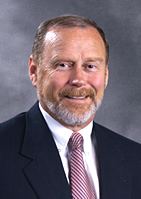© 2012 The Texas Lawbook.
By Janet Elliott
Staff Writer for The Texas Lawbook
AUSTIN – A lawyer for a demoted Parkland Memorial trauma surgeon urged the Texas Supreme Court Wednesday to protect the doctor and other government employees who report wrongdoing through internal channels.
Failing to do so would leave Texas whistleblowers in a “really precarious position,” said Dallas lawyer R. Brent Cooper, who represents Dr. Larry Gentilello.

The physician has been trying since 2007 to get his retaliation claims against the University of Texas Southwestern Medical Center heard by a jury. He alleges that UTSW demoted him as head of its surgical burn, trauma and critical care unit after he reported to his supervisor that faculty physicians weren’t properly supervising resident doctors.
The medical center is fighting to get the lawsuit dismissed, arguing that Gentilello failed to meet the requirements of the Texas Whistleblower Act that allegations be reported to an “appropriate law-enforcement authority.”
The law states that an employee must have a “good faith” belief that the person to whom he reports wrongdoing is authorized to regulate or enforce the law, or is authorized to investigate or bring a criminal prosecution.
Cooper said Gentilello’s supervisor, Dr. Rogert Rege, “clearly had power to require compliance” with federal Medicare and Medicaid laws.
But Texas Assistant Solicitor General Bill Davis said that Rege had not been delegated a federal enforcement authority. He said the allegations must be reported to a proper authority, “not just to someone who has internal power to do something.”
Justice Nathan Hecht asked Davis if it makes sense to require whistleblowers to call police about a Medicare violation when they are busy “arresting rapists and murderers.”
Davis said a business that is dumping toxic waste could cover up evidence if an employee only reported internally instead of going to the EPA or Texas Commission on Environmental Quality.
Gentilello is credited with bringing UTSW and Parkland under regulatory scrutiny. Last year, UTSW, while denying wrongdoing, paid $1.4 million to settle billing fraud investigations with the state and federal governments.
Cooper told the court that most government agencies have internal rules for employees to report violations, and that employees, particularly those in low-level positions, should not lose their legal protections against retaliation if they follow those policies. Texas public policy should encourage whistleblowers to report fraud that could be costing taxpayers, he added.
There are several other cases involving Texas government whistleblowers pending before lower appellate courts. In each of those cases, Cooper said, employees followed internal agency procedures for reporting wrongdoing.
Davis said the court should follow its 2002 ruling in a lawsuit brought by a Texas Department of Transportation employee who was demoted after telling agency officials that a co-worker had been driving while intoxicated. The court dismissed the case, holding that the employee could not have had a good-faith belief that TxDOT could enforce drunken driving laws.
Cooper, a shareholder in Cooper & Scully, said Gentilello’s case is different because Rege had power under UTSW’s billing compliance plan to refund money to the federal government.
This is the second time the high court has considered Gentilello’s lawsuit, but the first time the justices heard oral arguments.
The Dallas-based 5th Court of Appeals previously concluded that Rege “had both the power and the duty to enforce” Medicare and Medicaid rules and regulations at UTSW. The medical school said in its legal filings that the Dallas appeals court has twice refused to apply the proper precedents from the Supreme Court.
Gentilello, who no longer works at UTSW, said in his lawsuit that he learned of practices regarding inadequate patient care, improper supervision of surgical residents and failure to follow proper operating room and patient treatment protocol. Those practices, he said, violated federal rules and could lead to overbilling.
UTSW disagrees that Gentilello raised his concerns before he was demoted on grounds that he was a poor administrator.
Gentilello also filed a federal lawsuit, which was dismissed by a federal judge in late August.
© 2012 The Texas Lawbook. Content of The Texas Lawbook is controlled and protected by specific licensing agreements with our subscribers and under federal copyright laws. Any distribution of this content without the consent of The Texas Lawbook is prohibited.
